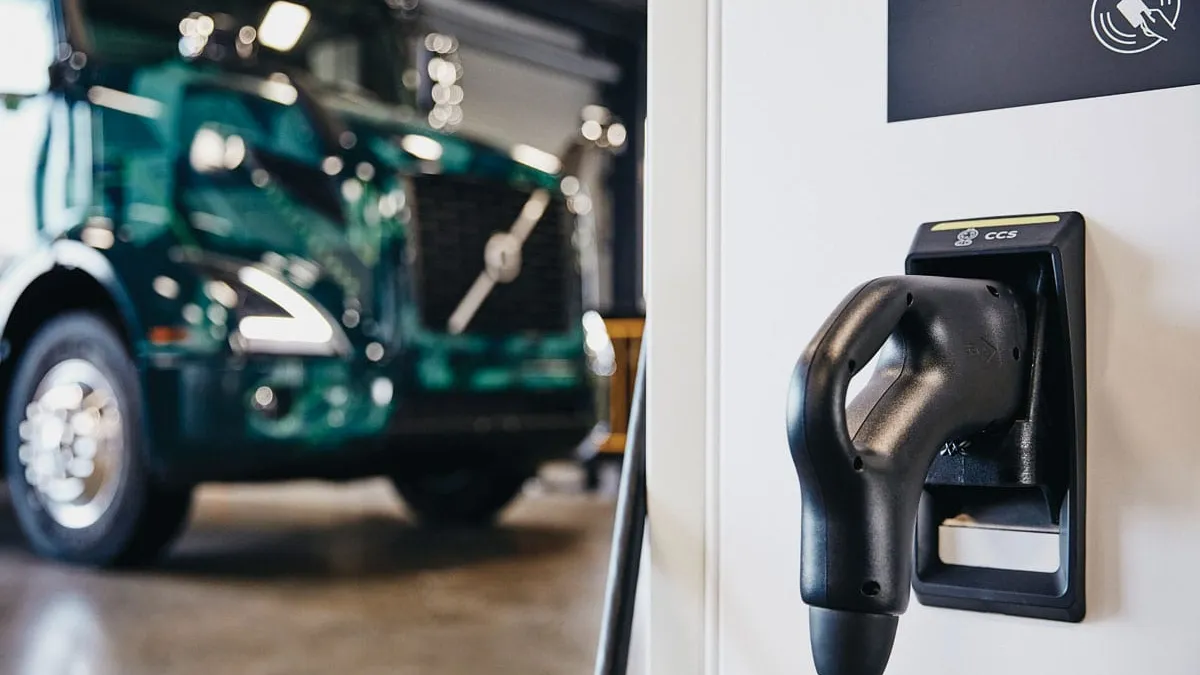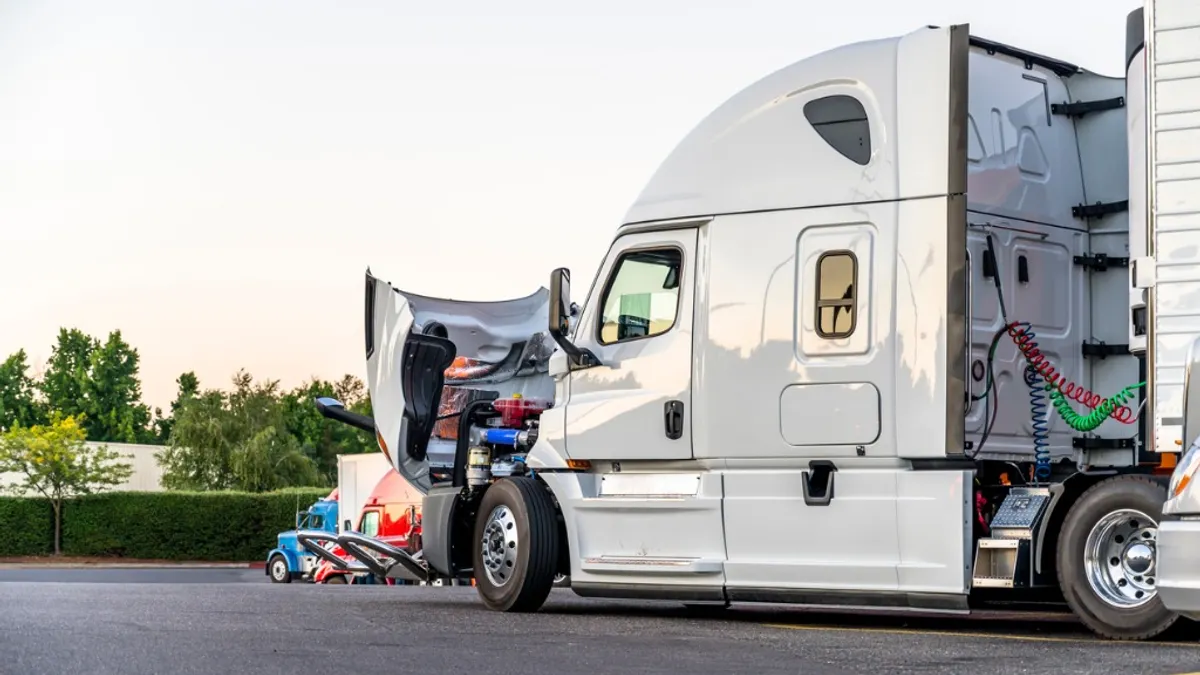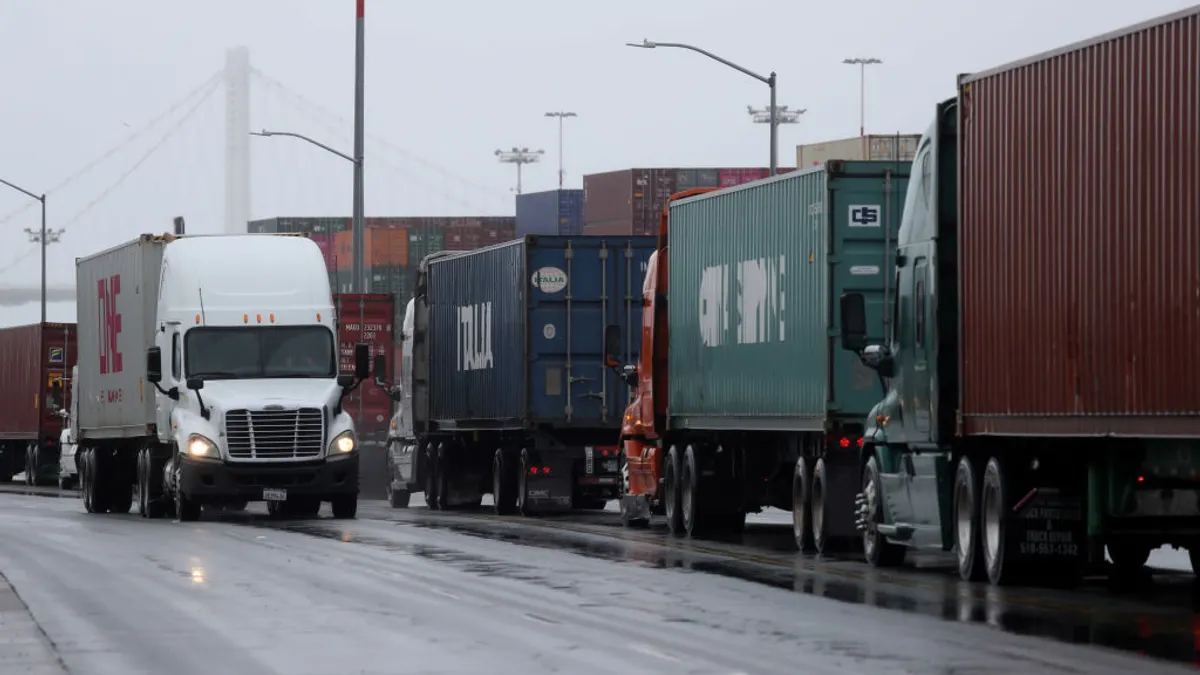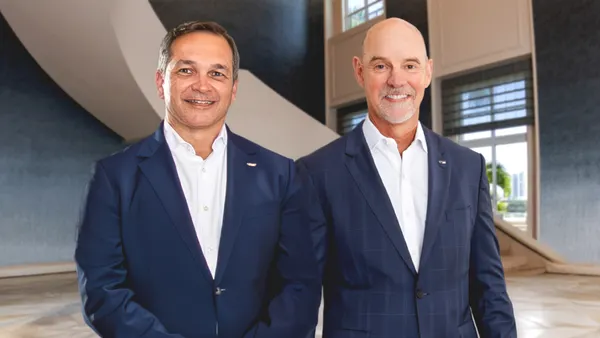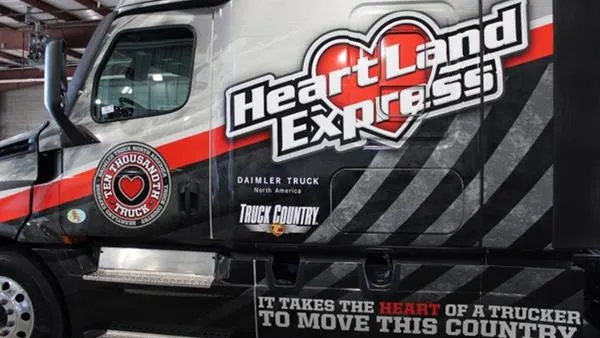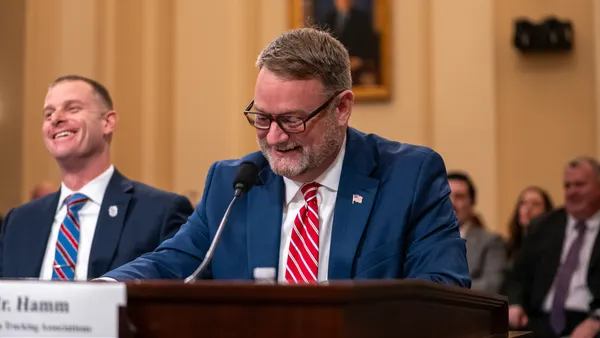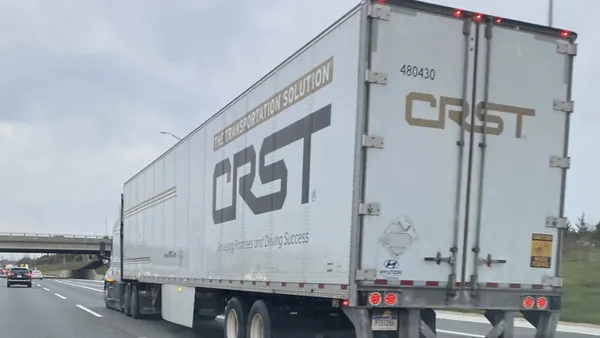With historic driver shortages, few companies can get by without owner-operator partners. They fill a vital role in keeping things moving — quite literally. At the same time, a model that relies on non-company vehicles can present sustainability challenges.
Fleets with a dedicated commitment to greener operations sometimes struggle to get owner-operators to buy into whatever measures that commitment requires. Even the best of relationships can find this a trying topic.
"There's definitely a balance to find, because there are more stakeholders involved when working with owner-operators," said Jim Castelaz, founder and CTO of Motiv Power Systems. "But with some creativity, companies can make it work in a very scalable way."
But many owner-operators can see the value of sustainability, Castelaz said.
"It might not be their top priority — usually that's the economics and the actual experience of driving their trucks — but they often do care about their environmental impact, too," he said.
That leaves fleets with plenty of options for appealing to owner operators and getting them on board with sustainable practices.
Finding the right incentive
XPO Logistics understands this dilemma well, and has established specific measures to ensure its owner-operator partners have good reason to align with the company's sustainability approach.
"We are committed to innovation, including sustainability," Drew Wilkerson, president of North American transportation, said in an email. "We're always seeking out new ways to deepen our impact, which includes helping our customers achieve their [environmental, social and governance] goals."
That, in turn, informs how the company works with its owner-operator partners.
"Within our brokerage business, we're committed to building relationships with carrier partners that share our goals of sustainability improvement through electric trucks, alternative fuels and other initiatives," said Wilkerson.
Castelaz said that many large carriers will offer owner-operators incentives for investing in electric vehicles, for instance.
"The fleets know it will cost them more money to give the owner operators incentives, but they can pass this along to their customers," he said. "This might look like a green delivery surcharge, which is becoming more common."
"With some creativity, companies can make it work in a very scalable way."

Jim Castelaz
Founder and CTO of Motiv Power Systems
Still, these are the early stages of incentivizing driver partners and nothing is off the table moving forward. For example, a company could offer increased payment per delivery or per mile for using a greener vehicle, said Castelaz.
In some cases, owner-operators understand that, while the initial purchase price of an electric vehicle might be higher, operating costs might be lower overall. And state-sponsored programs, like those in California, can lower the cost, Castelaz said.
For long-haul trucks, however, some of this may remain in the future, as fleets wait for infrastructure to catch up with goals.
"If a truck can sit somewhere overnight to charge, it's not that expensive," said Castelaz. "But if not, it's tougher and more expensive."
Walmart, for instance, announced last year it was aiming for full electrification of its fleet, and zero emissions from all vehicles in its North American transportation network, by 2040.
It noted in an email to Transport Dive, however, the technology for Class 8 trucks is in its early stages, and infrastructure is not yet in place. But a spokesperson said it is working with a variety of partners to help accelerate that process.
XPO Logstics turns to tech
XPO takes a different approach that owner-operators may not find as noticeable as offering incentives: putting technology to use.
Its digital freight marketplace, XPO Connect, uses machine learning to provide actionable insights to help carriers cut down on empty miles and, ultimately, their carbon footprints.
"Eliminating just a small number of empty miles from a fleet of long-haul trucks can save hundreds of gallons of fuel," said Wilkerson.
XPO Connect also helps drivers find dedicated lanes for consistent freight in lanes they frequently travel; offers carriers the chance to keep trailers full through backhaul, for continuous movement; and offers the "Get Me Home" tool to assist drivers in finding loads that will help them get back to their home base or other location.
"The fleets know it will cost them more money to give the owner operators incentives, but they can pass this along to their customers."

Jim Castelaz
Founder and CTO of Motiv Power Systems
Additionally, XPO works closely with its partners on specific customer sustainability audits to measure their ESG standing.
"During the onboarding process, we collect important information from our carrier partners, including their SmartWay status and their usage of any alternative fuels," explained Wilkerson. "This data is refreshed bi-annually through our carrier survey."
Moving forward, supply chains will increasingly put pressure on every partner to get on board with sustainable efforts, whatever that may look like, said Castelaz.
This holds true at XPO, said Wilkerson.
"We leverage our scale and technology to reduce our carbon footprint, and we encourage our business partners to demonstrate a similarly high respect for environmental policies," he said.

